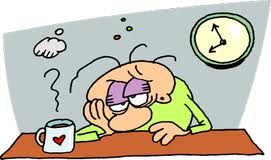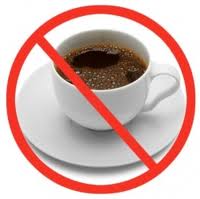Did you have a good night? Are you having good nights? Sleeping, that is.
 When your nights are not good (or just too short…), your days tend not to be good either. Up to a point you can exercise the old “mind over matter” strategy and affirm having a good day despite your sleep deprivation, then do all you can to engage yourself positively in the activities of your day. However, night after night will catch up with you. You might be getting through your days OK, but are you giving yourself and your body the sleep you need? Do you feel rested and ready to go in the morning? Do you have enough energy to sustain you throughout the day? If not, it might be worth taking a look at your sleep and consider making some changes to get the sleep your body and mind may be craving.
When your nights are not good (or just too short…), your days tend not to be good either. Up to a point you can exercise the old “mind over matter” strategy and affirm having a good day despite your sleep deprivation, then do all you can to engage yourself positively in the activities of your day. However, night after night will catch up with you. You might be getting through your days OK, but are you giving yourself and your body the sleep you need? Do you feel rested and ready to go in the morning? Do you have enough energy to sustain you throughout the day? If not, it might be worth taking a look at your sleep and consider making some changes to get the sleep your body and mind may be craving.
Getting Enough Sleep
Most adults need seven to eight hours of sleep each night. Some seem to do fine on six, and others need as many as nine. To add to the challenge, the quality of your sleep is as important as getting enough of it. It’s a little easier to start with the length because that’s often the easiest to do something about. Most people need or want to wake up by a certain time in the morning, which means that, for most of us, the part we have to work with is what time we’re going to bed. And, for many of us, we often stay up late on Facebook or Twitter, or we’re texting or surfing the web or playing computer games.
You have to be very committed to disconnecting from your day and letting yourself go to sleep.
And even then, if being on the computer or your cell phone or watching TV was the last thing you did before you went to bed, you might have difficulty falling asleep or might have difficulty sleeping well.
 Wow! There’s a lot to this whole area, isn’t there? It’s generally recommended that you disconnect yourself from your cell phone, computer and TV at least an hour before you want to go to sleep, to give your brain a chance to wind down from that kind of visual stimuli and processing of information. Perhaps you might consider reading a book you’re enjoying (but not on your Kindle…) or listening to some music or journaling or perhaps even doing a relaxation exercise during that time instead. It is generally much easier to replace an old habit with a new one, instead of just trying to do nothing.
Wow! There’s a lot to this whole area, isn’t there? It’s generally recommended that you disconnect yourself from your cell phone, computer and TV at least an hour before you want to go to sleep, to give your brain a chance to wind down from that kind of visual stimuli and processing of information. Perhaps you might consider reading a book you’re enjoying (but not on your Kindle…) or listening to some music or journaling or perhaps even doing a relaxation exercise during that time instead. It is generally much easier to replace an old habit with a new one, instead of just trying to do nothing.
Stimulants and Sleep?
On to another sleep stealer — caffeine. One of my favorite beverages. There’s a lot of individual variability with caffeine, but the same kind of recommendation holds true. Don’t drink coffee or caffeinated tea or soda too close to your hoped-for bedtime. What is too close? I’ve seen recommendations to stop drinking caffeinated beverages as early as 3:00, and some people know that they need to follow that advice, or they’re not able to fall asleep. Caffeine does affect your body for several hours so you might consider backing up when you stop drinking it until you notice that you can more easily fall asleep. Three to fours hours would be a good place to start.
coffee or caffeinated tea or soda too close to your hoped-for bedtime. What is too close? I’ve seen recommendations to stop drinking caffeinated beverages as early as 3:00, and some people know that they need to follow that advice, or they’re not able to fall asleep. Caffeine does affect your body for several hours so you might consider backing up when you stop drinking it until you notice that you can more easily fall asleep. Three to fours hours would be a good place to start.
Also, for those of us taking ADD meds, be very careful to take them as prescribed. If you’re taking short-acting Adderall, for example, you want to make sure that you’re not taking your last dose too close to your bedtime! Otherwise, you’re likely to lie in bed and want to go to sleep but not be able to! It’s a yucky feeling. I’ve tried it for naps. Very frustrating!
A Relaxing Drink Can Backfire
On the other end of the spectrum is alcohol. We usually drink it in the evening to wind down or enjoy time with friends, but it has a rebound effect that occurs several hours after we’ve imbibed that can wake us right up, sometimes making it hard to fall back to sleep! If you do drink, please be moderate, and keep in mind both sides of the effects of alcohol, the initial relaxation and the delayed rebound effect. When you’re aware of this, you’re in a better position to make a good decision for yourself about whether to drink that evening.
Checklist
* Am I getting seven to eight hours of sleep?
* Am I allowing some time before I go to bed to let my brain wind down from the computer, TV and cell phone?
* Am I doing something relaxing before bedtime that helps my brain and body wind down?
* Am I being careful to stop drinking coffee or other caffeinated beverages a few hours before bedtime?
* Am I conscientious about taking my ADD meds as prescribed so they don’t interfere with my sleep?
* Am I remembering that even though drinking alcohol can be relaxing, drinking it in the evening can cause me to wake up in the middle of the night?
There are so many things that can affect our sleep, in either a helpful or a detrimental way. By answering these questions, you have a good starting point to assess your own sleeping habits and see if you’d like to make any changes. Sleep is something that can dramatically affect the quality of our days, and it is worth our time to do what we can to enjoy our days as much as possible!

 by Heart Light Digital
by Heart Light Digital